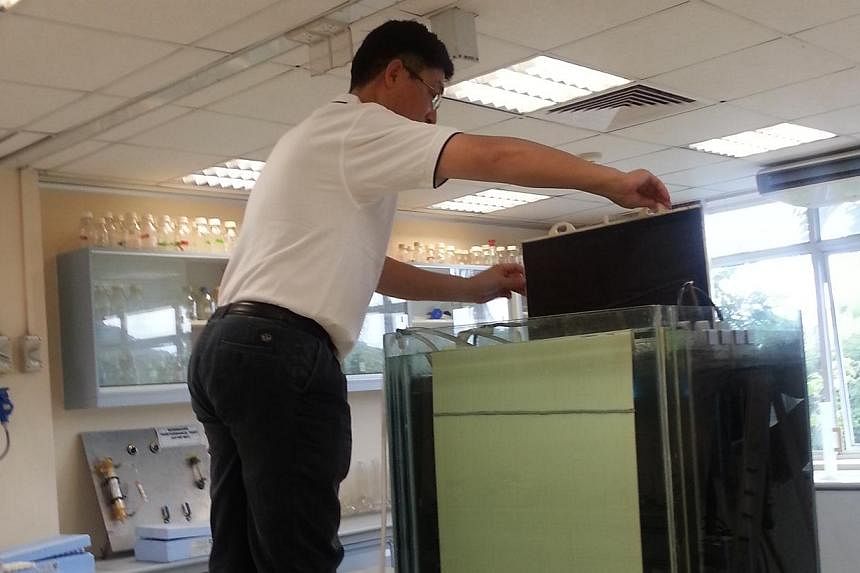SINGAPORE - Filtering impurities and bacteria from waste water often requires the use of polymer or ceramic membranes - but these often come at a high cost and require frequent cleaning with expensive chemicals.
Now, a team from the Nanyang Technological University (NTU) has come up with a self-cleaning membrane that is more cost-efficient.
Announced at a media briefing on Thursday, this membrane is made from a patented titanium dioxide nanotechnology - the brainchild of Associate Professor Darren Sun, from NTU's School of Civil and Environmental Engineering.
"With more of the world's population moving into urban cities and generating more waste water, there is a real need for cost-effective technology," Prof Sun said.
Polymer membranes, for instance, need to be replaced every two or three years, but the NTU-made membrane is expected to last twice as long. The nano particles in the membrane also react to sunlight, helping them clean off the debris collected without the need for washing with chemicals like sodium hydroxide.
Due to the nature of the titanium dioxide particles, water passing through the membrane can also pass through at a rate at least 10 times faster than traditionally used polymer and ceramic membranes.
The invention is now being marketed by a start-up under the university called Nano Sun. The two-year-old company, staffed by a team of seven, has already clinched several deals in the region, such as an industrial paper mill in Guangzhou, China.
Locally, Nano Sun said it is also in talks with local water agencies and companies.
Co-founder and managing director of Nano Sun, Adjunct Professor Wong Ann Chai, said: "The scope of our membranes is far ranging and of benefit to companies in the chemicals, food and biomedical industries."


